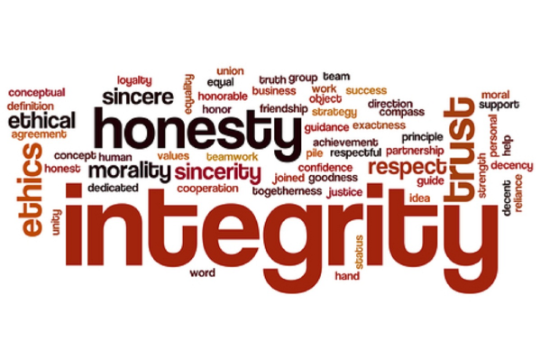Moral Education: The Key to Rejuvenating the System
Iffat Binte Iftekhar | 20 January 2021
"Once a man knows good from evil, nothing on earth can compel him to act against that knowledge." ― Socrates
The realisation of and ability to differentiate between good and evil can be considered a sign of possessing good moral character. The Latin word "moral"has been derived from "mos" or "moris", which means,"of or pertaining to character or disposition, considered as good or bad, virtuous or vicious; of or pertaining to the distinction between right and wrong, or good and evil, in relation to the actions, volitions, or character of responsible beings; ethical". Moral education refers to teachings of how to lead life ethically. Virtues such as truthfulness, honesty, charity, tolerance, love, kindness and sympathy are instilled through moral education.
Morality is not an inherent trait, rather a psychological development influenced by the environment children grow up in. The responsibility of teaching basic morality falls upon parents, as they are considered to be every child's first teachers. Therefore, according to traditional belief, people acquire good character from home rather than school or anyplace else. However, currently, an average child at the elementary level in Bangladesh spends five to six hours in school; if we also add the time it requires to do the schoolwork at home, we realise just how significant a role schools play in building a student’s character.
Since schools have a hand in developing students' virtues, subjects like religion, history, and sometimes cultural studies have been added to the curricula to shape the youths' minds. The extent of this education for the students seems to bereading these textbooks, memorising the values and writing them on the exam paper. Students in Bangladesh typically"learn" but do not "realise" – the same can be said in the case of morality teaching. Moreover, since current students are growing up in the digital era, their vision, compared with that of students from when this present curriculum was fit for passing as moral education, has changed drastically. The access to knowledge and information in modelling their intellect and reasoning now surpasses the bounds of their home and school. This generation's behaviour or attitude cannot be controlled through blind obedience anymore.
This begs the question: why is moral education necessary? It is essential for when children are developing their worldviews. It helps young minds explore religious and social beliefs and reflect upon their values. It builds the awareness to not be prejudiced against different races, religions or statuses and be tolerant and respectful of every individual's right to sustain. Being kind, wise and ethical is rare in today's world, where everyone only values having a high income. Simple traits such as crossing the road properly or standing patiently in a queue, which are considered basic manners worldwide, are absent in Bangladesh, resulting in chaos. Public roads or transportation, and ever our beautiful sea beaches and tourist spots, are riddled with littering.
Some of our country's recent issues include rising violence against women, harassment, and the culture of rape and victim-blaming. The lack of proper education regarding consent and the practice of hiding important information from children behind the curtain of "indecency" are alarming. Since the start of the COVID-19 pandemic and online home schooling, numerous teachers have faced insulting remarks from students in the name of amusement during classes. The fact that these children feel the urge to humiliate teachers when not being monitored should be sufficient in pointing out our failure in imprinting the right moral compass in them.
Japan is a country well known for its brilliance in innovation, competitiveness and precision. Moral education is an innate part of Japan's education system. In their guidelines, one hour a week is allotted to teaching students various moral attributes. Hard work, perseverance, fairness, and orderliness are some of the values that are taught. Since the beginning of 2018, "Dotoku" or moral education is a full-fledged subject in their curriculum. Few countries in the world can match Japan's discipline and mannerisms. If we want to validate the effectiveness and reflection of their moral teachings, we can look at the Corruption Perception Index of 2019 by Transparency International. According to the index, Japan received 73 points (100 pointing to no corruption), where the world average was 43. On the other hand, Bangladesh scored 26 points, ranking as one of the worst countries for corruption. Although Japan's curriculum has its own set of drawbacks and criticism, the positives outweigh them.
How can we include moral education in our curriculum, and what methods can be usedto get the best results? Firstly, this form of education should be grade-less with no written exam. It should instead be discussion-based where it is mandatory for every student to take turns in leading the class on different days with a topic of their own choice. Discussion and debates regarding different perspectives, be it about religion, politics or culture, create room to grow tolerance among people with different opinions. Respecting the elderly, taking care of animals, and helping the disabled could be taught by various activities such as visiting orphanages, homeless shelters or old-homes once a month. Elementary children could participate in role-playing and learn simple manners such as traffic rules, using dustbins properly, standing in queues or greeting others politely.
The government should emphasise on adding moral education in our curriculum, and parents should make sure their children possess moral integrity along with good grades. So, what can we expect from young people with good moral character or citizens who grow up after going through this system? Do we want people to all have the same thoughts, opinions and judgements? By having a sound mind and soul through the lens of morality, we certainly do not mean wanting perfect, robotic people in our society, but rather empathetic people who make ethical choices.
Iffat Binte Iftekhar, Research intern, CGS.
Views in this article are author’s own and do not necessarily reflect CGS policy.
